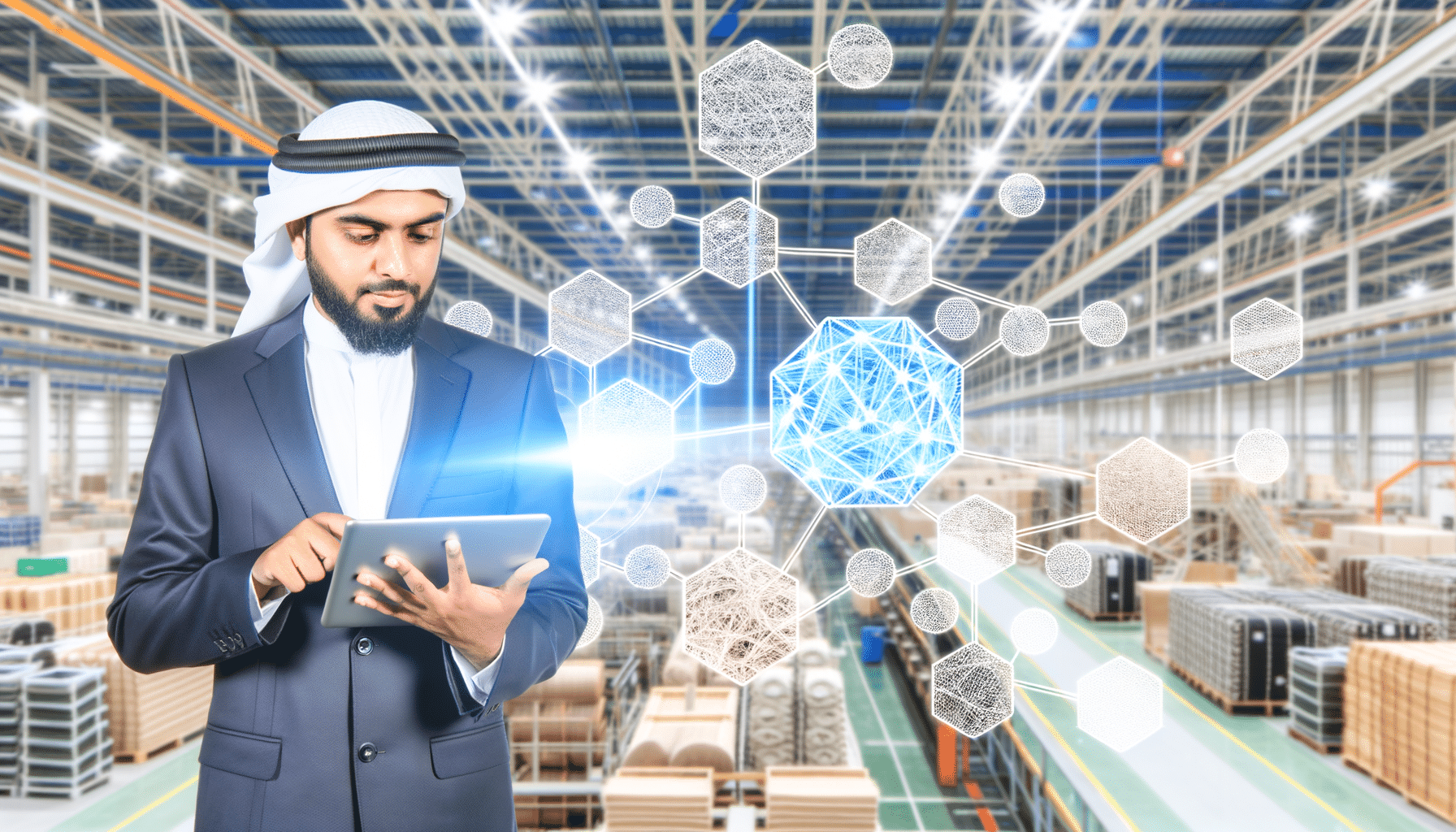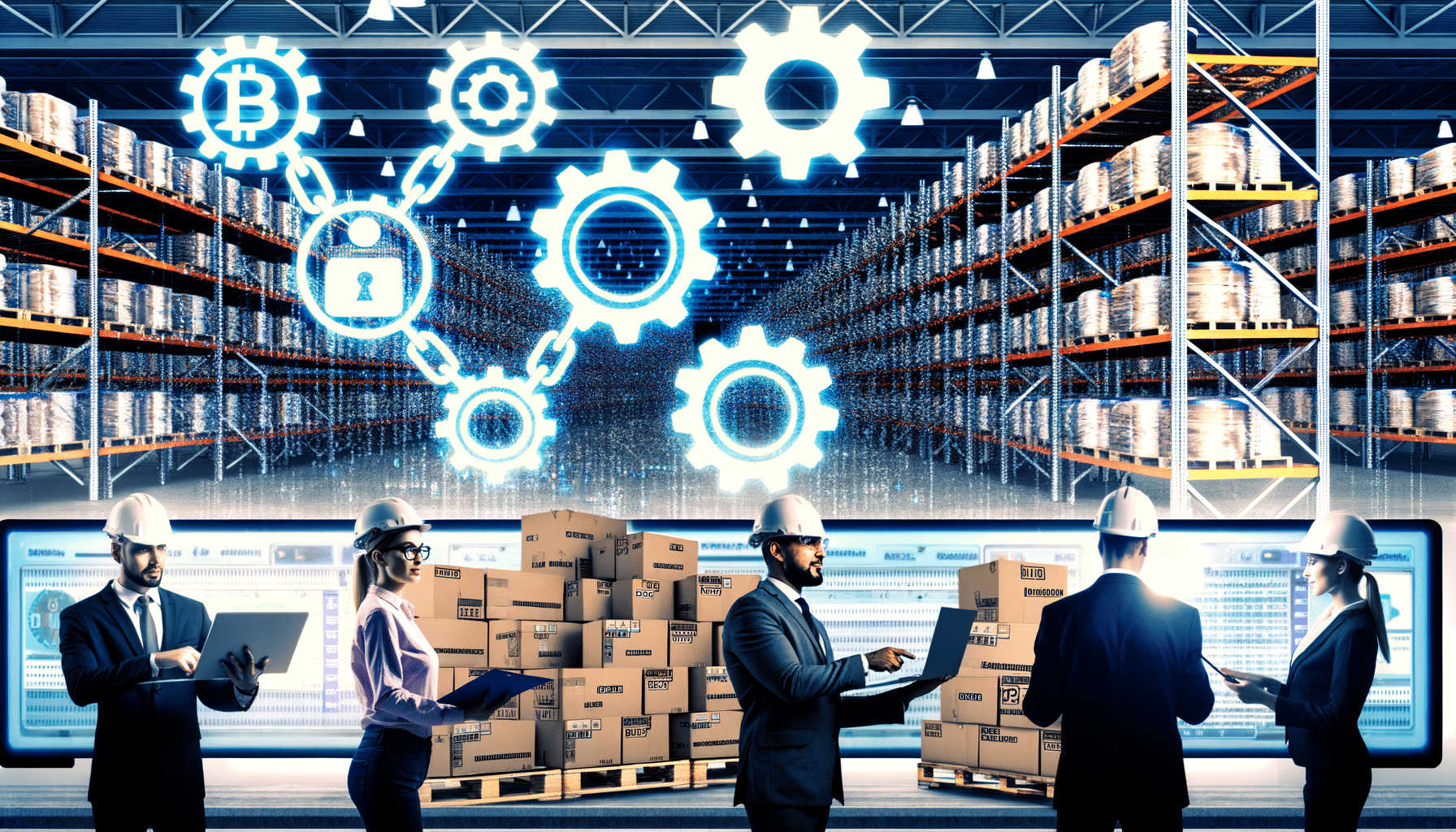- Manufacturing
- November 16, 2024
Blockchain for Ethical Sourcing in Manufacturing

As industries relentlessly search for methods to ensure sustainable and ethical operations, the manufacturing sector faces a mounting responsibility to enhance its sourcing practices. The complexities of global supply chains often blur transparency, leading to ethical oversights—intentional or otherwise. This is where blockchain technology comes into its own, offering a ground-breaking paradigm for ethical sourcing in manufacturing.
Understanding the Need for Ethical Sourcing
In today’s interconnected world, consumers demand more than just the final product; they seek transparency, fairness, and environmental responsibility in how products are made. Ethical sourcing ensures that the materials and labor employed in manufacturing preserve human rights, uphold labor laws, and minimize environmental impacts.
The task, however, is immense. Manufacturing chains span multiple regions, with raw materials, semi-finished, and finished goods crossing myriad borders. Each junction risks ethical compromise due to opaque practices, making oversight and accountability challenging.
How Blockchain Reinforces Ethical Sourcing
Blockchain technology offers a decentralized, tamper-proof ledger that immutably records each transaction across the supply chain. How does this fit into ethical sourcing?
- Transparency and Traceability: Blockchain ensures that every step in the manufacturing process—from sourcing raw materials to distributing the final product—is recorded and accessible. This transparency allows stakeholders to verify each element’s origin and journey, ensuring compliance with ethical standards.
- Accountability: The immutable nature of blockchain records guarantees that once data is entered, it cannot be changed or deleted. This immutability holds all parties accountable, discouraging unethical sourcing practices such as the use of child labor or environmental exploitation.
- Enhanced Certification Processes: Verifying certifications or standards compliance becomes straightforward with blockchain. Approved certifications can be maintained as part of the blockchain record, offering indisputable proof of ethical sourcing credentials.
- Consumer Trust: With blockchain, consumers can access verified information about the product’s lifecycle, building trust and brand loyalty. Brands committed to transparent, ethical practices can showcase their dedication through visible, secure data.
Real-World Applications
Several pioneering companies are already integrating blockchain to bolster ethical sourcing:
- A notable technology giant is using blockchain to track mineral sourcing for its devices, ensuring materials are conflict-free and ethically obtained.
- A prominent apparel and footwear company employs blockchain to provide customers with details about the supply chain journey, from cotton fields to retail shelves.
- In the food industry, blockchain is utilized to assure consumers of fair trade practices and sustainable sourcing of raw ingredients.
Challenges and Considerations
While blockchain presents significant opportunities, it is crucial to acknowledge and prepare for its implementation challenges:
- Integration Costs: Setting up blockchain networks involves initial costs and resource commitments that may be significant for smaller manufacturers.
- Technical Expertise: Organizations need skilled personnel or partners to deploy and manage blockchain-based solutions effectively.
- Interoperability: Ensuring blockchain systems can communicate and integrate with existing supply chain technologies is essential for seamless operations.
Looking Ahead: A Strategic Commitment
Embracing blockchain for ethical sourcing is more than a technological shift; it represents a strategic commitment to sustainability and integrity. As manufacturers work to align with increasingly sophisticated consumer demands, blockchain offers a compelling avenue to reaffirm ethical standards across global operations.
As the founder of a tech-driven solution for optimized record management, I find the potential of blockchain in ethical sourcing immensely promising. The fusion of advanced technologies offers a roadmap not just for improved business practices but for reshaping how we align business with global values. Let’s embrace this opportunity and together pioneer a truly transparent, ethical manufacturing landscape.
For more technology insights and strategies, stay connected, and let’s lead the change in smart and ethical business innovation.
Toshendra Sharma is the visionary founder and CEO of RecordsKeeper.AI, spearheading the fusion of AI and blockchain to redefine enterprise record management. With a groundbreaking approach to solving complex business challenges, Toshendra combines deep expertise in blockchain and artificial intelligence with an acute understanding of enterprise compliance and security needs.
Related Posts

Document Control in Manufacturing Plants
Managing records in production environments.
- December 21, 2024

Blockchain-Based Inventory Records for Manufacturing
Improving inventory tracking in manufacturing through blockchain.
- November 16, 2024
Archives
- December 2024
- November 2024
- October 2024
- September 2024
- August 2024
- July 2024
- June 2024
- May 2024
- April 2024
- March 2024
- February 2024
- January 2024
- December 2023
- November 2023
- October 2023
- September 2023
- August 2023
- July 2023
- June 2023
- May 2023
- April 2023
- March 2023
- February 2023
- January 2023
- December 2022
- November 2022
- October 2022
- September 2022
- March 2019
Want to get more content like this?
Signup to directly get this type of content to your inbox!!
Latest Post
Organizing External Auditor Access
- December 22, 2024
Document Control in Manufacturing Plants
- December 21, 2024
Handling Rush Financial Report Requests
- December 20, 2024
Managing Record Access After Staff Changes
- December 19, 2024





